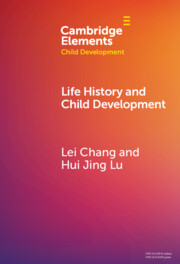Refine search
Actions for selected content:
1 results

Life History and Child Development
-
- Published online:
- 06 June 2025
- Print publication:
- 26 June 2025
-
- Element
- Export citation
